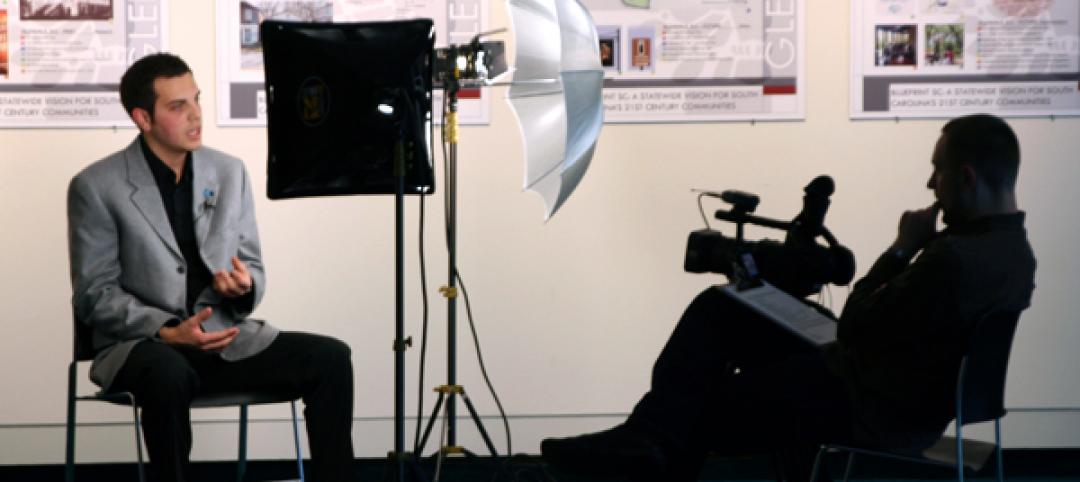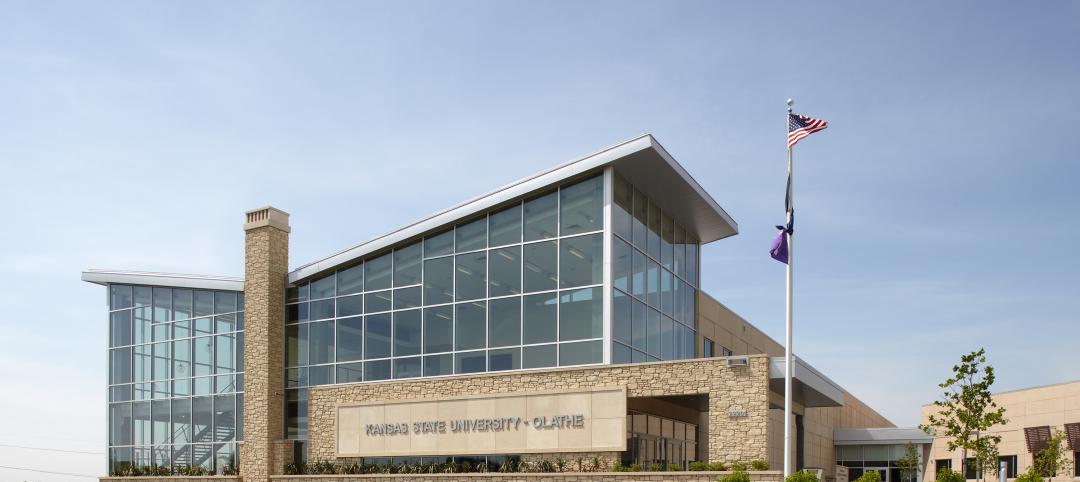On September 29, the MILL National Training Center opened in Colorado Springs, Colo. The 46,000-sf facility, in a former potato chip factory, is being touted as the first of its kind in the nation to offer high school students, military veterans, teachers, and anyone looking to start a new career training in woodworking manufacturing, cabinetry, and construction.
The MILL—which stands for Manufacturing Industry Learning Labs—opened with an estimated $3 million in equipment, more than $500,000 of which was donated by Stiles Manufacturing, a Grand Rapids, Mich.-based company that makes computer numerically controlled devices.
All told, the MILL is working with 40 business partners, including paint manufacturer and retailer Sherwin Williams, which is opening its second design center in the country (https://www.youtube.com/watch?v=mL3g6Zp2J0Y&t=61s) at the Training Center, and has donated $300,000 to its operations. Locally based RTA Architects provided architectural services to The MILL in exchange for access to its high-tech machines to develop prototypes. The Wood Machinery Manufacturers of America and the Woodworking Machinery Industry Association donated $25,000.
The facility, near Shriver Air Force Base, is on a Vocational and Educational Campus sponsored by two school districts: Peyton School District 23-JT and Widefield School District 3. The genesis of the MILL can be traced to woodworking manufacturing classes that Peyton, a school with 600 students, started offering its students in the fall of 2016, in an old school east of Colorado Springs.
The MILL's Founder and President is Dean Mattson, a former cabinetmaker whom Peyton hired in 2015 to help get its school’s woodworking classes off the ground. Mattson had launched a similar program for Oregon’s North Salem High School that, in six years, turned out 3,000 skilled workers. Mattson was unavailable for comment about the Mill.
Enrollment for those classes at Peyton quickly grew, from 40 the first semester to 100 last fall. Thirty-five of those students are from the Widefield district, which became aware of this program via an open house that Peyton’s superintendent Tim Kistler hosted to show it off.
While 50 students continue to be enrolled in Peyton’s woodworking courses, 85 of the district’s students now attend the MILL’s woodworking classes, and 50 its construction classes, according to Kistler. (Each of these sessions is 90 minutes long, four days per week. Kistler says the school will go to five days a week next year.) A total of six school districts are bussing kids to either the MILL or to Peyton.
Widefield, a school district with 9,300 students, paid $1.1 million to buy the building that the Mill operates from. Peyton will pay Widefield back until each district is a 50% owner.
The 46,000-sf MILL training center is equipped with more than $3 million worth of machinery. Image: Courtesy of RTA Architects and The MILL
The rationale behind The MILL National Training Center is the ongoing shortage of skilled construction labor. In their third-quarter 2017 report, USG Corporation and the U.S. Chamber of Commerce found that 91% of contractors polled are at least moderately concerned about the skill levels of their workforces. And 60% said they are still having trouble finding skilled workers, particularly electrical, HVAC, roofing, sheet metal, and mechanical installers.
The construction industry’s 4.5% unemployment rate is the lowest it’s been in a decade. The trade group Associated General Contractors reported that in October, construction employment increased in only half of the states compared to the same month a year ago, “a total that would probably have been higher if workers were available,” said AGC’s economist Ken Simonson.
The MILL’s courses, which are each one semester (53 to 63 instructional hours), offer a career-training path that enables graduates to be nationally certified in the use of woodworking machines, manufacturing equipment, software, and production skills. Students work toward earning a Woodwork Career Alliance (WCA) Certification Passport, which equates to a national certification credential to operate woodworking machinery and apply lean manufacturing principles in any kind of secondary wood or other manufacturing setting.
The MILL currently has two instructions for its woodworking courses, and two for its construction courses.
Public school students attend for free, with their school districts picking up the costs. Next year, the courses will be opened, on a fee basis, to military veterans and other people looking to get into the construction field.
On February 7-9, the MILL Academy will offer a three-day seminar for teachers and administrators who want to learn how to build support for an industrial arts program in their schools, including public-private partnerships. Participation in that session costs between $2,295 and $2,995 per person, with discounts for multiple enrollments from the same organization.
The MILL has the capacity to handle up to 1,000 students per semester, and Kistler thinks it can hit or exceed that number.
A condition of Stiles Manufacturing’s equipment donation was that the MILL be located within 15 minutes of Colorado Springs’ airport, and near restaurants and hotels, to abet the MILL's national recruitment efforts. An estimated 77,000 companies offer jobs that require Stiles tools. In February, Stiles is sending a contingent of employees and product users for training. Other manufacturers have indicated that they’d like to use the facility for the same purpose.
Kistler foresees the MILL National Training Center eventually becoming a vocational high school by day, and a place for continuing education by afternoon and night.
Related Stories
| Jun 19, 2012
Armstrong Issues Environmental Product Declarations On Nine Popular Ceiling and Steel Suspension Systems
Transparent new documentation allows end users to make more informed decisions when selecting ceilings for projects
| Jun 1, 2012
New BD+C University Course on Insulated Metal Panels available
By completing this course, you earn 1.0 HSW/SD AIA Learning Units.
| Jun 1, 2012
Caruso to lead Gensler’s Asia talent development
Caruso will be based in Shanghai and working with the Gensler offices in Japan, China, South Korea, Singapore, Thailand, and India until the spring of 2013.
| Jun 1, 2012
K-State Olathe Innovation Campus receives LEED Silver
Aspects of the design included a curtain wall and punched openings allowing natural light deep into the building, regional materials were used, which minimized the need for heavy hauling, and much of the final material included pre and post-consumer recycled content.
| May 31, 2012
AIA Course: High-Efficiency Plumbing Systems for Commercial and Institutional Buildings
Earn 1.0 AIA/CES learning units by studying this article and successfully completing the online exam.
| May 29, 2012
Reconstruction Awards Entry Information
Download a PDF of the Entry Information at the bottom of this page.
| May 24, 2012
2012 Reconstruction Awards Entry Form
Download a PDF of the Entry Form at the bottom of this page.
| May 16, 2012
AIA issues guide to IGCC
Getting the IgCC adopted in all 50 states and in jurisdictions across the country is the primary mission of the ICC, which published the code in March.
| May 10, 2012
Chapter 3 How Building Technologies Contribute to Reconstruction Advances
Building Teams are employing a wide variety of components and systems in their reconstruction projects.
| May 10, 2012
Chapter 2 Exemplary High-Performance Reconstruction Projects
Several case studies show how to successfully renovate existing structures into high-performance buildings.














